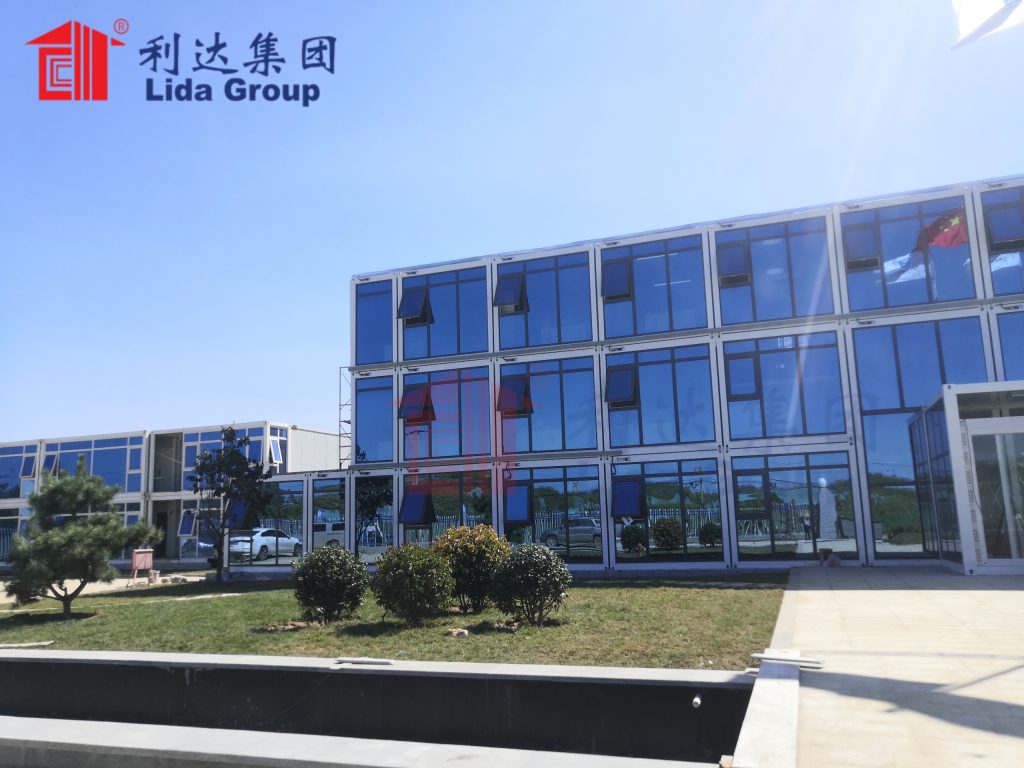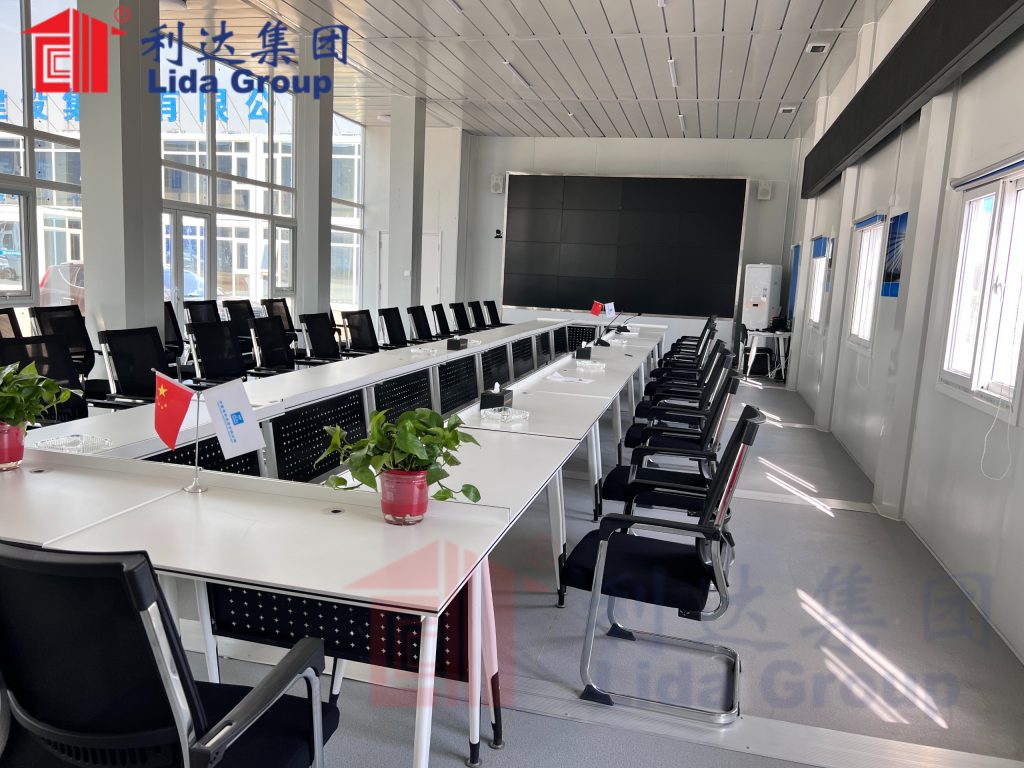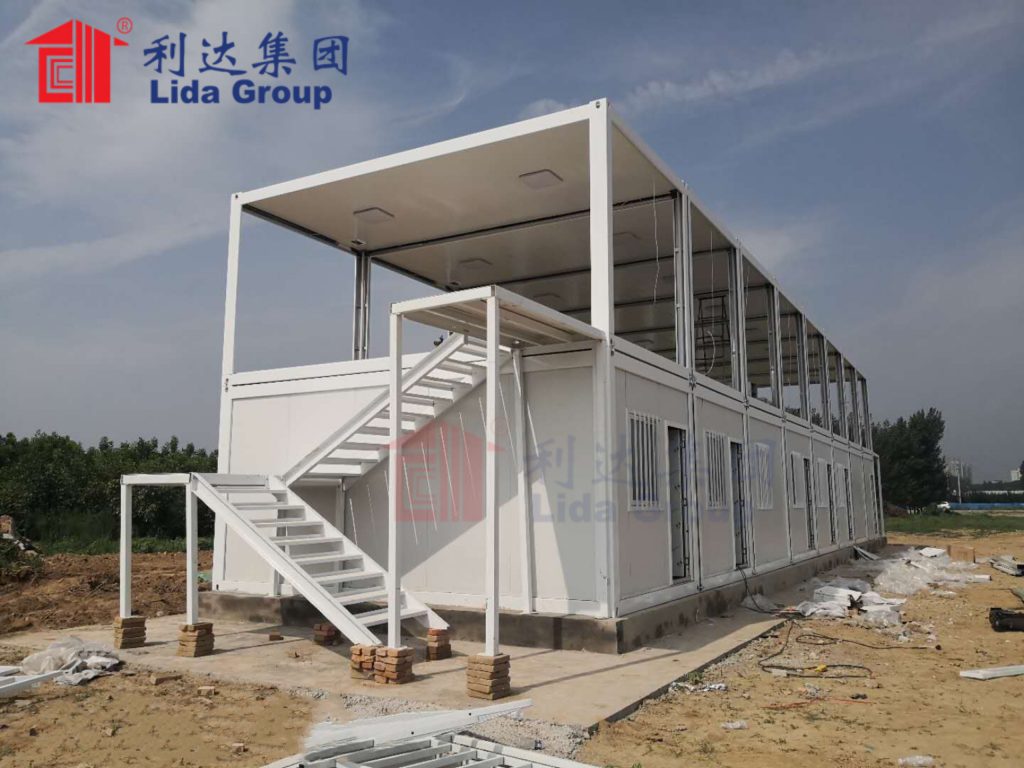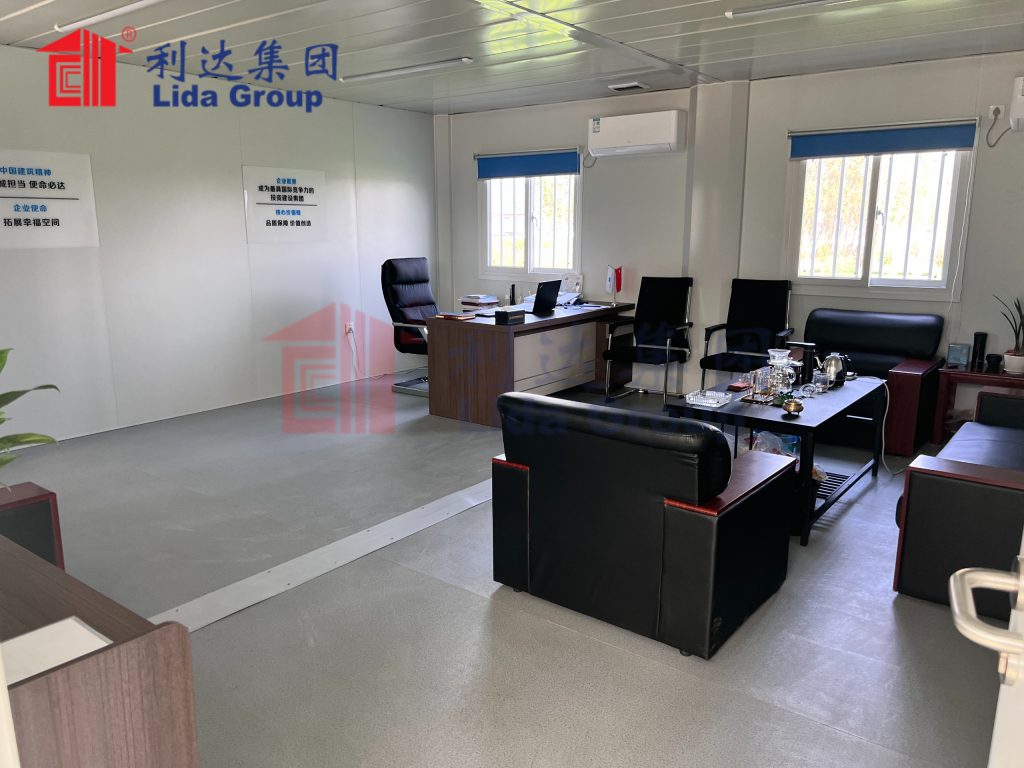Chinese construction giant Lida Group has announced plans to significantly expand their global operations centered around modular and container-based prefabricated housing solutions. With a newly formed international division, the Shanghai-based company aims to capitalize on surging worldwide interest in off-site building techniques that promise to transform residential construction.
Lida Group CEO Mu conveyed the strategic move at the company’s annual leadership summit, citing projections that prefabricated, modular, and container-built housing will capture over 30% of new building starts globally by 2030. “Demand is skyrocketing as demographic and environmental pressures reshape how we must deliver more housing, faster and at lower environmental cost,” he said.
Research shows factory-assembled building methods not only reduce construction timelines by 30-50% but also waste by up to 90% compared to on-site building practices. Products like Lida’s award-winning prefab and container homes are increasingly in demand for affordability, sustainability goals and density needs amid constrained urban land supplies.
Mobile living spaces also gain popularity where flexible, relocatable accommodation supports remote workforces, students, disaster relief and more transitory markets modern lifestyles are creating. With transport costs decreasing for reused structural materials like steel shipping containers, modular architecture finds synergies extending green building principles.

Lida aims to serve these expanding markets with standardized, cost-competitive and customizable housing solutions deployed rapidly anywhere through flat-pack design. A fleet of containerships will distribute cargo to regional distribution hubs with local assembly teams for turnkey community builds. Subsidiary companies will also license Lida’s technologies and provide local fulfillment.
While China pioneered construction prefabrication and holds over 30% global market share in volumetric modular building, overseas expansion allows servicing clients worldwide with streamlined supply chains and cultural adaptation. Lida estimates addressing just 5% of projected 10-year demand could represent annual revenues exceeding $5 billion USD.
International division head Wang outlined key target regions during the summit. Oceania faces severe housing unaffordability and natural disaster risks modular architecture mitigates through resilient prefab design. Population booms strain infrastructure across Southeast Asia where land regulations limit sprawl yet densities rise.
North America shows growing interest in “accessory dwelling units” and tiny home communities for aging in place as well as migrant worker accommodation. Europe has ambitious sustainability mandates incentivizing off-site construction. Cash-strapped governments in emerging markets seeking mass workforce housing prioritize scalable delivery methods.

Mu emphasized building strategic international partnerships. “Success requires deep localization – understanding each market’s customs, policies and project pipelines. We’ll integrate with housing authorities, private clients, modular component manufacturers and even competitors through joint ventures where synergies exist.”
Lida’s design catalog will undergo cultural adaption through regional focus groups. Tropical designs leverage natural ventilation over air conditioning while arctic regions emphasize thermal envelopes. Culturally-attuned interior finishes and layouts improve market fit beyond technical specifications alone. Modular systems also integrate distributed renewable strategies like rooftop solar as codes allow.
Prefab engineers will travel assigned territories developing reference projects showcasing applications. Financial models assess customized ownership, rental and buyback models maximizing affordability. Rendered communities demonstrate design flexibility at urban, suburban and remote settings to spark developer imagination.
Local recruitment will establish 30 international outposts within 3 years. Regional factories license and assemble “Construction Kits” containing complete structural, envelope and interior builds transported rapidly to infill formerly difficult sites. Integrating local employment serves humanitarian goals while preventing dislocation from development.

Strategic partnerships already formed. Canada-based Weehouse tiny home manufacturer will market Lida’s off-grid container cabins through their dealership network. Indian startup Anyboty Labs incorporates Lida’s AI-enabled robotic bricklaying and cladding installation to speed affordable housing projects. UK modular builder Story Contracting integrates Lida’s open floor cassettes into mixed-use building prototypes.
A landmark Indonesian social housing initiative will pilot Lida’s stackable 4-story container buildings containing 200 dwellings in half the schedule of conventional build. Local hire sourcing and assembly ensure ethical technology transfer progressing local manufacturing capabilities. Throughput targets hit with local production decreasing shipping environmental footprints.
Inaugural projects prove insightful for modular scaling. Quality control and skilled trades capacity represented early bottlenecks soon mitigated by phased project ramp-ups and additional recruitment. Cultural nuances required translating technical documentation, while material availability necessitated local substitutions. But rapid assembly demonstrated efficiency advantages.
Community designs will evolve incorporating findings. Prefab “kit of parts” increase configuration flexibility responding to urban infill sites. Smaller container footprints allow creative campus-style layouts over high-rise clusters. Interior configurations shift based changing household compositions. Modular attachment points enable phased expansions. Strategic land banking readies future-proofed housing pipeline growth.

Modular housing provides opportunities for broader impact. Disaster resilience demonstrates social purpose beyond simple units. Training programs impart skills escalating domestic industries. Research aims mass customization through collaborative robotic manufacturing promising further affordable housing scale. Standardized assembly reduces costs without sacrificing design diversity or quality.
Prefabrication promises sustainable habitats supporting thriving societies worldwide. Lida Group strives catalytically solving urgent housing crises our species faces through industrialized building practices raising quality of life. Partnerships sharing their vision will advance modular architecture’s role transforming how future generations shelter and communities develop globally for decades to come. International expansion accelerates that potential through a distributed and growing global network.
Construction methods must progress hand-in-hand with humanity’s aspirations. Lida aims demonstrating how modular solutions scaling housing production through cooperation and community betterment can help realize societies where all have secure homes supporting dignified, purposeful lives. Though nascent, modular building’s time has come – and international cooperation will shape its role alleviating humanity’s greatest challenges through greater collaboration between builders worldwide.

Related news
-
Officials Tour Lida Group Factory to Evaluate Automated Modular Construction Techniques for Stackable Multifamily Container Home Developments Filling Urban Housing Shortage
2024-04-09 15:22:06
-
Developers Convert Decommissioned Shipping Containers into Micro-Homes Using Standardized Modification Kits from Lida Group for Workforce Affordable Housing Community
2024-04-03 16:17:56
-
Lida Group Leads the Way in Scalable, Sustainable Temporary Housing
2024-02-02 10:33:58
contact us
- Tel: +86-532-88966982
- Whatsapp: +86-13793209022
- E-mail: sales@lidajituan.com


